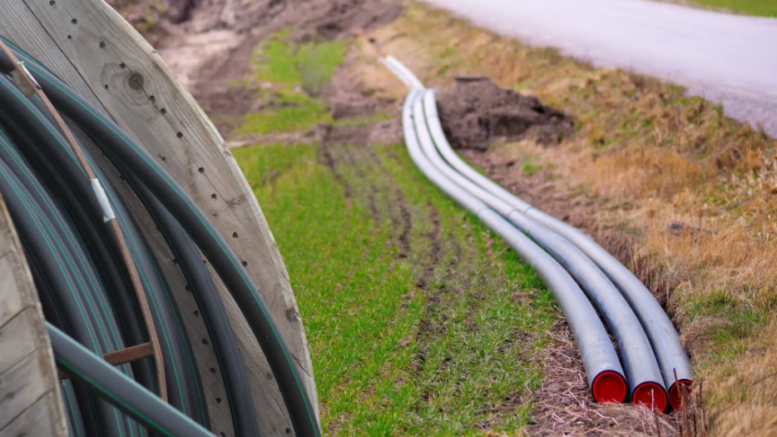U.S. Secretary of Commerce Gina Raimondo recently traveled to North Carolina to tout the Biden administration’s “Internet for All” initiative, though experts believe it may help some at the expense of others.
Raimondo unveiled the initiative on Friday beside Gov. Roy Cooper at The Kramden Institute in Durham, where she said each state will receive $5 million to develop a five-year plan to expand internet access.
The funding is part of a $45 billion allocation in the infrastructure law approved by Congress last year. Raimondo said North Carolina is in line to receive at least $100 million through the program toward the goal of providing internet access to all Americans by 2030.
“Every American deserves access to the internet, period,” she said.
She described the initiative as the “biggest investment in internet ever in our nation’s history” and asserted the motivation is “about accessing healthcare,” according to WRAL.
The money can be used for laying cable or providing computers to those without them, according to the news site.
“Internet is not a luxury,” Raimondo said. “It’s a necessity.”
The visit came just days after President Joe Biden announced 20 internet companies across the country have agreed to provide discounted service to low income folks through an “Affordable Connectivity Program.” The $60 per month average cost for internet service is too high for most Americans, Raimondo said, and the program provides $30 monthly subsidies for an estimated 48 million households to cover the full cost of the discounted plans.
About 40% of Americans would qualify based on income, or participation in government assistance programs, according to WCNC.
“That seems very excessive,” said Jon Sanders, senior fellow for regulatory studies and research at The John Locke Foundation. “It’s hard to imagine that 40% is in unserved areas. To me, it suggests there’s going to be a lot of waste in the program.”
Officials estimate 1.1 million people in North Carolina either don’t have access to high-speed internet or can’t afford it. National Telecommunications and Information Administration data shows Northampton County has the highest percentage in the state without internet at 40.2%. The statewide average is 21.5% that do not have internet access, WRAL reports.
“I think it’s more defensible for funding to bring internet to areas that are hard to reach,” Sanders said. “But to just suddenly decide to subsidize close to half of the US’s internet is completely different.”
“What usually ends up happening is costs go up. The people who aren’t getting the subsidized price end up paying more,” he said. “The intent is to shift the burden, but what happens is … the overall price ends up going up. It’s a large number of people.”
The Internet for All program came with three Notices of Funding Opportunity: Broadband Equity, Access, and Development Program ($42.5 billion); the Enabling Middle Mile Broadband Infrastructure Program ($1 billion); and the State Digital Equity Act programs ($1.5 billion), according to a U.S. Department of Commerce press release.
“To participate in the BEAD Program, states and other eligible entities must submit a letter of intent and a planning funds budget, which will unlock $5 million in planning funds and allow states to begin creating their five-year action plan. Each participating state is guaranteed a minimum $100 million allocation, with additional funding determinations made based on the forthcoming coverage maps from the Federal Communications Commission,” according to the release.
The Enabling Middle Mile Broadband Infrastructure Program will award grants on a technology-neutral, competitive basis to eligible entities for the construction, improvement, or acquisition of middle-mile infrastructure, while the State Digital Equity Planning Grant Program will invest $1.5 billion to heighten adoption and use, like digital literacy training, for communities of color, rural communities, and older Americans.
This article was originally posted on Expert says ‘Internet for All’ initiative that could bring $100M to North Carolina could be wasteful

Be the first to comment on "Expert says ‘Internet for All’ initiative that could bring $100M to North Carolina could be wasteful"